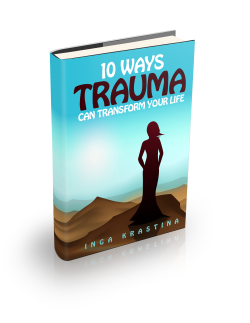‘There is no grief like the grief that does not speak.’
/Henry Wordsworth/
The words ‘grieving’ and ‘mourning’ are used interchangeably yet there is a difference between the two.
Grieving is our internal thoughts and feelings when we are faced with the loss – unspeakable sadness, despair, anger, sorrow, numbness, fear, shock, feeling that we’ll never be able to be happy again etc. All these feelings are normal response to life shattering events and they are very individual.
Mourning is outward expression of these thoughts and feelings. In different cultures there have been rituals of mourning after funerals (and in some indigenous cultures they still are practised), but in our modern western society we have lost them. I still remember talks in my family after death of my sister and later grandmother about wearing black for a year, or at least wear a small black lace on the sleeve to show that you are grieving. Now there is no way you can say from the appearance of the person that they are grieving. I think it’s not necessarily important to let everybody know that we are grieving, but it is essential to process the grief, both internally and externally; and that’s what mourning is about. Finding healthy ways to mourn is finding ways to heal.
Not all of us have lost a loved one, including pets that usually become family members and might be grieved as intensely as human beings. But most of us have experienced at least one of the following: loss of relationships, a job, health, cherished dream; loss of our innocence when life starts to beat us up or something traumatic happens; move from the home you loved; retired from job you loved; graduated from college or university. How do you grieve and mourn those? Do we get out of busyness of our stressed day and really honour what we have lost? Do we find time to just sit with our pain and honour our feelings to the depth of our core? Do we search for ways to express our feelings?
What are the ways we can mourn in our modern society?
1. First of all it can be any creative activity that brings emotional relief:
 Journaling; be it just writing or creating journals with pictures and expressed thoughts;
Journaling; be it just writing or creating journals with pictures and expressed thoughts;- Creating artwork – collage, woodwork, photography;
- Writing songs or poems.
2. Crying – tears are purifying and healing, but it’s also ok not to cry. Acknowledge what feels right for you.
3. Evenings with family and friends with storytelling and sharing photos about the loved one.
4. Taking up a pilgrimage – not easily done in our mad world and probably requires a certain type of personality, but such a journey can be life changing. I still am intending that one. On Inspirations page you will find a movie that tells a story of a man’s pilgrimage after he had lost his only son.
5. Praying and meditating.
6. Celebrating the life of loved deceased one, in whatever form seems appropriate. People in general are reluctant to ask questions about the person who we’ve lost, assuming that it would add to our pain. Such a view just stems from our ignorance and not being taught how to grieve and how to support those who do. People who have lost a loved one LOVE talking about them! They want to share their life, their legacy, their story. Our fear to hear these stories and see the pain of our friends or relatives who have lost someone, is actually our own pain we are afraid to face.
7. Your own unique rituals. Do what feels right and what brings relief.
 Enter your name and email in the form below to receive my Free e-book!
Enter your name and email in the form below to receive my Free e-book!
Speak Your Mind